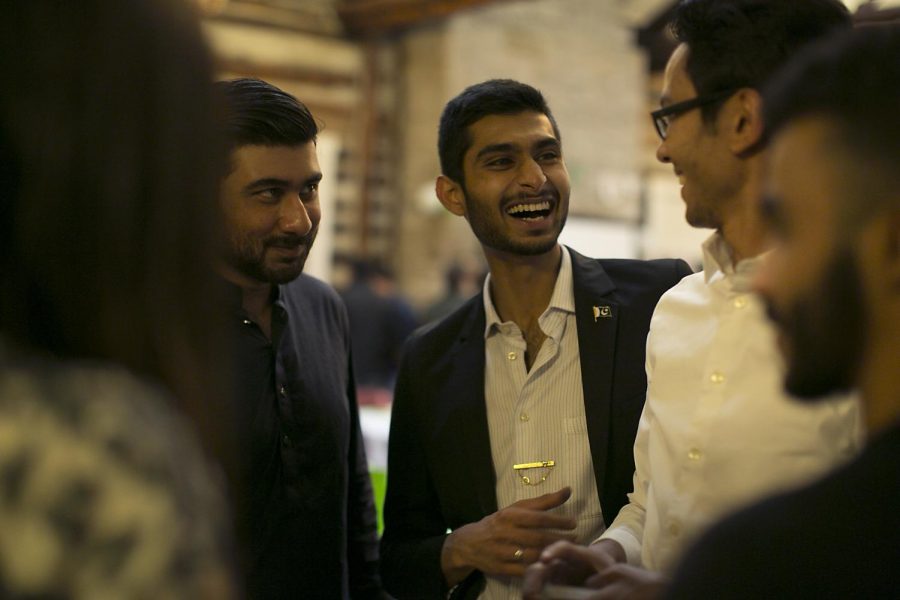Pakistan Day bridges cultural gaps with education
April 5, 2016
CULTURAL CONCOCTION
WKU’s Pakistani Student Association hosted its third annual Pakistan Day on Saturday night amid lively music, food, dancing and presentations about Pakistan in a celebration of its culture.
The Pakistani and American flags placed at the center of each table symbolized the joining of cultures on Saturday and celebrated what the different cultures have to offer.
As guests filtered in, a slideshow displayed scenic photos of Pakistan and descriptions of the Pakistani people’s many accomplishments.
Pakistan is home to the world’s largest mountain face, Nanga Parbat, according to the slideshow. The Edhi Foundation in Karachi, Pakistan, is the world’s largest volunteer ambulance organization.
These are just a few examples of Pakistan’s culture — pieces of the nation that might go unrecognized in America and in other Western nations.
PSA Vice President Rafey Wahlah, an undergraduate student from Lahore, Pakistan, said a key purpose of Pakistan Day is to dispel stereotypes held against the country because of how it’s represented in the media.
“We want to show people who we are and where we come from,” Wahlah said.
PSA President Toqeer Omer, a graduate student from Islamabad, Pakistan, said PSA works to foster understanding between Pakistani and other nationalities at WKU to promote awareness about culture and tradition.
Omer welcomed guests to Pakistan Day after voices joined together in the singing of Pakistan’s national anthem, “Qaumi Tarana,” followed by “The Star-Spangled Banner.”
Omer spoke about the importance of promoting diversity and inclusion at WKU. He encouraged students to ask about Pakistan instead of developing stereotypes based on how the nation is portrayed by news outlets.
“Terrorism and bad people have no religion,” Omer said about the recent attack in Lahore, emphasizing the nation’s love of peace.
Student Government Association President Jay Todd Richey also spoke to the audience, addressing issues he has seen in the way international students are treated in America and at WKU.
Whether these issues are off-campus, such as problems with landlords, or on-campus in the separation between students, Richey said he wants to do anything he can to solve these problems.
He encouraged students to come to him when issues arise so he can help find a solution.
Shahbaz Munawar, founder of PSA, said he formed the association in 2014 because of the underrepresentation of Pakistani students he witnessed at WKU.
“Students often have a certain set of stereotypes about international students,” Munawar said, “and the same goes for international students; they have a preset mind about American students.”
Munawar said he encourages both American and international students to get to know each other on a personal level and develop lifelong friendships. This is the best opportunity on both sides to learn about different cultures, he said.
“The world is becoming a global village,” Munawar said, referring to the way media is bringing nations together.
He said it’s important not only to know one country but also to understand a multitude of cultures and people from different backgrounds.
“It’s going to be that much harder to live in a society with so many different backgrounds when you don’t know how to react to different cultures,” Munawar said.












